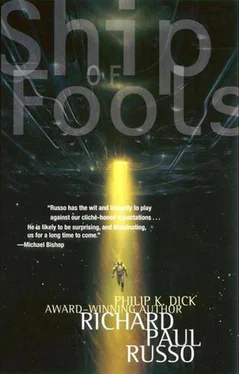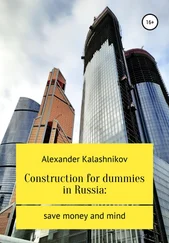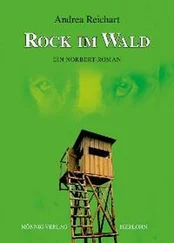“The lights belong to the ship, or are they ours?”
“Ours,” Nikos answered. “Navigational guidance, they help provide orientation and perspective, as well as some illumination. The ship’s surface has almost no reflectivity. We don’t pick up anything from it. No lights, no heat radiation, no drive disturbances or engine exhaust, nothing. Dead ship. But deadly.”
“What does that mean?”
Nikos made a huffing sound. “Nine weeks ago, the first exploration team flew over in one of the maintenance modules and made contact. They spent three days just locating an entrance. It took two more teams and another day and a half to finally figure out how to work the air lock system. We call it an air lock, but there’s no atmosphere inside. Cold and black as space…” His voice and attention drifted. “Sent in a couple of remotes, but they aren’t sophisticated, and they’re not very dexterous. Couldn’t get any further than the air lock itself, couldn’t manipulate the doors. There was another day of discussion and argument on the Executive Council, which won’t surprise you, but we finally reached a consensus, and a team went in. A few hours later we had the first casualty.”
I waited for him to continue, but he just stared at the image on the screen, eyes glazed.
“What happened?” I asked.
Nikos breathed in deeply and slowly let it out. “An accident. See for yourself.”
More finger movements on the console, and the image on the monitor shifted, flickered, went through a series of changes before finally resolving into shaky video of a pressure-suited figure crisscrossed with light and shadow, drifting weightlessly near a curved, dark metal wall. The figure’s left hand reached out and took hold of a bar on the wall, anchoring itself; the right hand held a large hand torch whose beam swept unevenly across the wall.
“That’s Santiago,” Nikos said. “On point. Every member of the team has a camera and light mounted on their helmet, so we have a pretty thorough record of everything that happens during each excursion. We try to have the video transmitted live back to the Argonos so we can follow along and communicate with them, but the transmissions break up fairly quickly, and the teams don’t get far inside before we lose them altogether. But everything is recorded, so we can always review it later.”
He touched another control, and the team’s audio was added to the video images. I could hear someone laughing, then a woman’s voice.
“Oh, man, Santiago, you’re a crude bastard.” Then more laughter, some of it stifled.
“That was Winton,” Nikos explained. “That’s her video we’re watching now. It shows the best view of what happened.”
For a time, we could hear only breathing. As Winton looked around, her camera revealed an enormous spherical room twenty-five or thirty meters in diameter. The walls were nearly featureless, broken only by regularly spaced bars that projected out half a meter—the bars served as handholds for the exploration team, but it seemed unlikely that that was their original purpose.
A third suited figure drifted into view, then just as quickly drifted out of sight.
“Marx,” Nikos said. “There were three in the first team.”
I knew Marx well. He was a very serious and quiet man, did not dislike me, and we got along. He was married and had two children, and I remember hoping as I watched that he wasn’t the casualty.
“Over here.” Santiago’s voice.
Winton turned her head and Santiago came back into view. He was next to a large opening or doorway, a hand on one bar, a boot resting against another. His hand torch was aimed into the opening, the beam cutting its way into darkness.
Winton pushed off the wall and floated toward him. “What have you got?” she asked.
“Not much. A huge room of some kind.”
She landed on the other side of the doorway as Santiago worked his way closer to the opening, shifting his grip from the bar to the frame. “I can barely make out the other end.”
Winton turned to look at Marx, who was watching from several meters away, holding onto a bar, his legs drifting about.
“Well, let’s check it out,” Santiago said.
Winton turned back to him. With one hand on the door frame, he swung himself out into the opening and began floating through it into the next room. Winton’s helmet light and hand torch crossed him and cast irregular beams into the darkness.
“What the…?”
He suddenly began moving more quickly, lost his grip on the door frame; then both hands reached out frantically as he picked up speed. But it was too late, the door frame was out of reach and Santiago plummeted into the room.
“Oh, shit!”
“Santiago!”
Winton was at the opening now, but holding back. The beams from her helmet light and hand torch caught Santiago’s reeling figure falling rapidly, his own helmet light flashing about in all directions.
No more words from Santiago, but now there was a drawn-out cry as he fell, his shrinking figure tumbling in and out of the light.
The cry ceased with a terrible but brief explosion of a scream. Then nothing.
“Santiago!”
“Winton! What happened?” Marx’s voice, rising in pitch.
“Santiago! Jesus, Santiago, answer me!”
Winton had her hand torch aimed down at the far end of the room, and I could see her hand and the beam shaking. Santiago’s unmoving body was illuminated by the dim light, sprawled on a flat surface. His helmet light had apparently been knocked out by the impact, but his hand torch was still functional. It lay nearby, its light reflecting off the shiny top surface of his helmet.
“SANTIAGO!”
Then there were no sounds except for rapid breathing from Winton and Marx. No one moved, no one said a word.
The video froze for a moment; then the image flickered and the screen went dark.
“You can watch the whole thing from Santiago’s camera if you like, but I recommend against it.”
“What happened?” I asked.
“Up to that point, every room and passage was zero g. But that cabin has gravity,” Nikos said. “Unfortunately for Santiago, it was twice Earth-normal, and in the wrong direction.”
Gravity in one room, none in the adjacent cabins and passages—which meant the aliens had been able to control gravity in a far more sophisticated way than we could. It was incredible. What else might be found in that extraordinary vessel?
“And Santiago?”
“Dead. There was no helmet or suit rupture, but he broke his neck.” Nikos paused, polishing off another drink. “His body was there for hours before we could get the people and equipment in to pull him out.”
By that time, we had gone through more than half the bottle of whiskey, and I was feeling it; I’d had no alcohol in months, and wasn’t accustomed to it. More than anything, though, it made me tired. I wanted to forget about the alien ship, forget about Santiago, forget about Nikos and his betrayals. I wanted to go back to my own quarters and reacquaint myself with them, go to sleep in my own bed. As if sensing that, or recognizing his own drunkenness, Nikos capped the bottle and ordered coffee brought in.
I was surprised to see Maximilian bring the coffee. We stared at each other, neither of us quite sure what to think. He set up a small table and tray with pot and cups, poured, then left. The coffee was strong but terribly bitter, and I had to dilute it with cream. I resisted the urge to complain that the coffee I’d had in prison was better than this.
I drank one cup quickly, then poured another. Nikos was just sipping his, and I suspected he wanted to add whiskey to it, maintain his blood alcohol level.
Читать дальше












